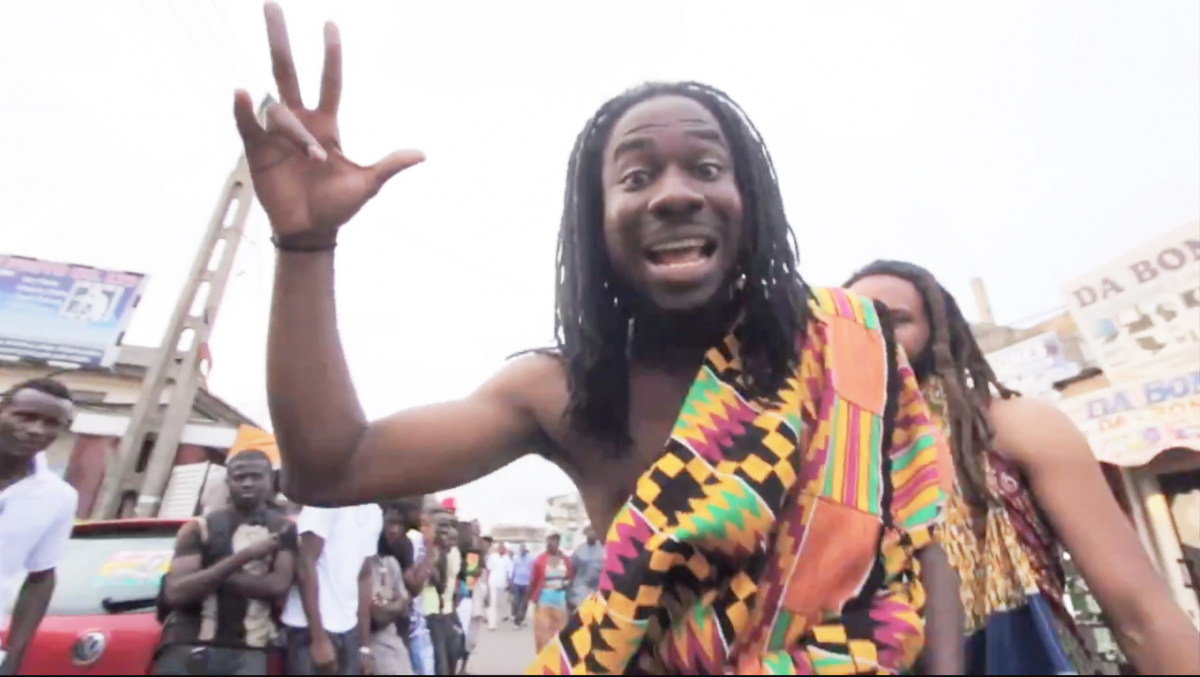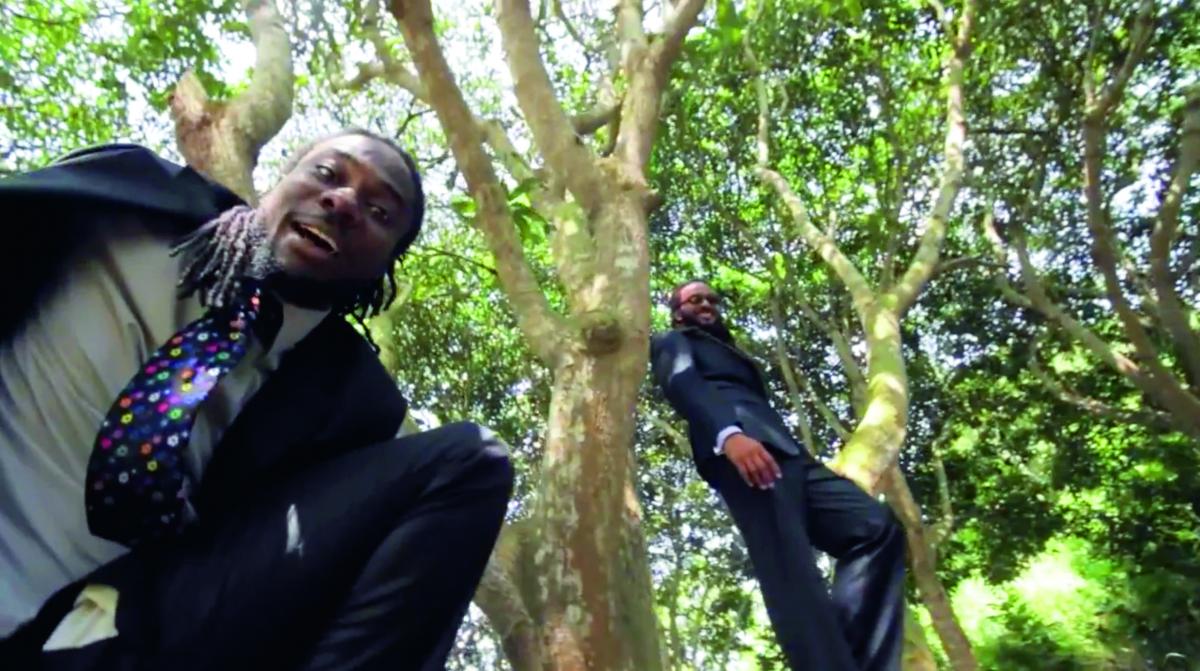
Multi-Mediated Pidgin Rap
The song «BRKN LNGWJZ» and its video announce the FOKN Bois (Wanlov the Kubolor, M3nsa) as critical, global, political, and absurdist hip hop voices. It marks the birth of international pidgin rap not only as a style once can dance to, but as a modernist multi-media art form. From the Norient book Seismographic Sounds (see and order here).
The song speaks to both Accra dwellers as well as global music fans. It requires multiple forms of fluency in linguistic, musical, and life experience to catch the fast and oblique references that M3nsa and Wanlov the Kubolor throw at listeners in rhyming half phrases. The dense referential style and subtle humor reflects the attitude in African metropolises. The FOKN Bois are self-professed hip hop heads and took the 1995 hit «Broken Language» by Brooklyn rapper Smoothe Da Hustler as a manifesto for proclaiming one’s identity. While the FOKN Bois build on Smoothe’s rhythmic flow, they eschew his sincere hyper-masculine intensity in favor of quirky and parodic poetics.
Taking West African Hip Hop to a New Level
Their homage to the American hip hop classic, however, is irrelevant for most Ghanaian fans who hear the track as a marker of generational dystopia, a critique of sincerity in religion and politics, and a call to appreciate the small pleasures in life—playing football in the streets, flirting, having sex, playing with words, climbing trees, talking trash, roaming the city. Hip hop has become a flexible and appealing global style precisely because it obliges artists to remix, sample, steal, and reflexively claim their places in the world and the right to move around it.
The FOKN Bois take the work of first generation West African hip hop artists to a new level. This song marks a more broadly significant moment in contemporary transnational African digital arts: The rise of a new generation of digitally savvy and multiply fluent artists across various media and languages. It is not adequate to call the FOKN Bois musicians or hip hop artists. They transcend musical genres and media as their recent feature films Coz Ov Moni 1 and 2 demonstrate. For them, music is only one way to express how to live a socio-politically engaged life. Their work is a form of entertainment that reflexively critiques inequality and exploitation; and it can also serve as a profound inquiry into how to have fun in a cosmopolitan city.
Taking Parody to a New Place
The FOKN Bois are smart, sexy, and insightful. They take parody to a new place and then make fun of the idea of parody. They smirk at you for listening to them. The FOKN Bois invoke the duality of the trickster as both creator and destroyer. Hustling relies upon agility of mind and mobility of body. The ethos of hustling – surviving and finding pleasure in a hostile world – permeates hip hop cultures around the world. It is also common to West African popular expressive styles. For young Ghanaian musicians and fans, hustling defines a form of pleasure, a way to imagine themselves as circulating successfully across a complex social landscape. Pidgin is a language made from the fragments of multiple linguistic traditions. The brokenness of older languages opens creative possibilities for new modes for speaking as in the FOKN Bois’ pidgin art.
This text was published first in the second Norient book Seismographic Sounds.
Biography
Shop

Published on April 15, 2017
Last updated on June 27, 2023
Topics
From Self-Orientalism in Arab music to the sheer exploitation of Brazilian funk music by acclaimed artists: how exotica examine aesthetics playing with the other and cultural misunderstandings.
Watch how cutting-edge music from Brazil to Singapore is represented in moving images.
From post-digital pop mocking the music history to Romanian folk music turning into a meme culture.

